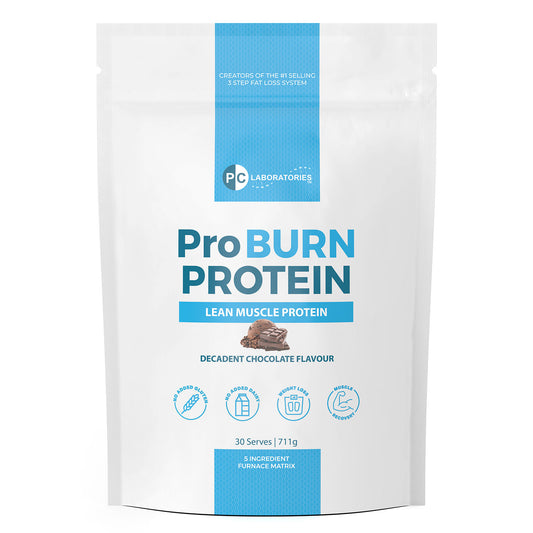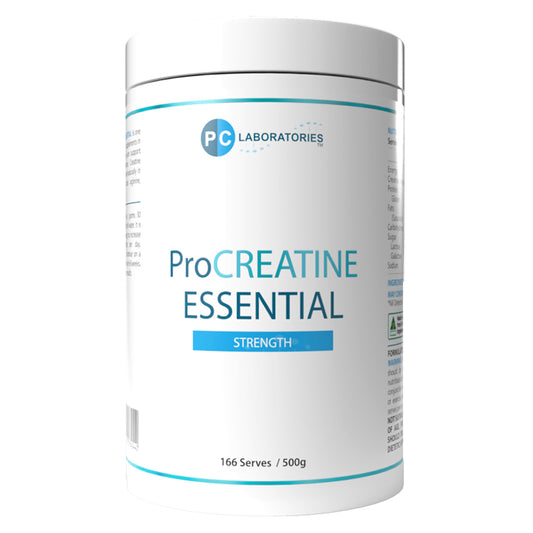If there were an award for underrated sports supplements, it would have to go to Glutamine. Muscle growth, rapid recovery and better digestion are all possible with this powerful amino acid. If you’ve been hitting the gym hard or just trying to keep your immune system from crashing after a stressful week, glutamine might be your new ally.
We’ve compiled all the information that you need about Glutamine. What does it do, and should you be taking it? Let’s break it all down—no fluff or wild claims, just the essentials. Supplementing the L-glutamine form is an easy addition to your sports stack, or if you’re working on gut and digestive health.
What Exactly Is Glutamine?
Glutamine is an amino acid, which means it’s one of the building blocks your body uses to make proteins. It’s technically a “conditionally essential” amino acid. That means your body can usually make enough of it on its own, but during times of intense stress (think illness, injury, or serious training), your natural supply may need a boost.
There are two forms of glutamine: L-glutamine and D-glutamine. L-glutamine is the one found in food and supplements. It is also the form your body uses to support a whole range of functions—from muscle recovery to gut health to immune support. L-glutamine supplements are most commonly used for:
- Muscle recovery and growth
- Repairing damaged tissue
- Supporting gut health (especially for conditions like leaky gut)
- Boosting immune system function
If you’re an athlete, this is simple to stack in with pre-workouts, BCAAs or your favourite protein drink. It is generally unflavoured and mixes well with water. Consider Glutamine supplements to support healing post-surgery, reducing digestive inflammation or for diagnosed leaky gut.
Glutamine and Muscle Growth: Is It Helpful?
In training, and especially during intense resistance or endurance training, you’re creating tiny tears in the muscle fibres. That’s normal and part of the muscle-building process, yet nutrition plays a key role in what occurs afterwards. Glutamine helps with repairing muscle tissue at a cellular level, so you get faster and stronger.
Research has shown that glutamine helps reduce muscle soreness, speeds up recovery, and may even reduce muscle breakdown (Wernerman, 2008). It also helps transport nitrogen between cells, which is important for muscle protein synthesis—the process your body uses to build new muscle. So while glutamine might not be the secret shortcut to bigger biceps, it’s part of the recovery crew working behind the scenes.
How Glutamine Helps Repair Tissue
Tissue repair doesn’t just apply to muscles, it includes everything from your skin to your intestines. Glutamine supports the synthesis of proteins and nucleotides, both of which are essential for cell growth and repair. After trauma or surgery, the demand for glutamine spikes because your body is working overtime to repair itself. It can be a great idea to supplement for several months prior, during and after surgery for best results. Glutamine also serves as fuel for rapidly dividing cells, like those that make up your intestinal lining and your immune system.
Glutamine for Gut Health
Here’s where things get interesting—glutamine is one of the most important nutrients for gut integrity. Your intestinal cells use glutamine as their main fuel source. That means when your gut lining is inflamed, damaged, or compromised (like in cases of leaky gut, IBS, or even food sensitivities), glutamine can help strengthen and repair it.
Leaky gut, or increased intestinal permeability, happens when the tight junctions in your gut lining start to loosen up. This lets undigested food particles and toxins sneak into your bloodstream, which can trigger inflammation and an overactive immune response. Studies have shown that glutamine can tighten those junctions back up and help rebuild the gut barrier (Rao & Samak, 2012).
People dealing with chronic gut issues, autoimmune conditions, or food intolerances often notice improvements when they include L-glutamine in their diet. Its ability to improve digestion, bloating, and overall gut comfort can alleviate some symptoms and improve nutrient absorption.
Glutamine And Immunity
It is a lesser-known fact that 70% of your immune system lives in your gut, yet it makes so much sense. Have you noticed how your overall health declines after a gut infection? The digestive system is designed to be the first line of defence for your health. Since glutamine plays a major role in gut health, it’s no surprise that it also supports immunity.
Our immune cells (like lymphocytes and macrophages) use glutamine as fuel to function properly. When your glutamine levels drop, like after a long illness, infection, or intense physical training, your immune function can take a hit. It should be a strong focus on consuming amino acids during illness recovery, especially glutamine.
A significant scientific study found that glutamine supplementation reduced infection rates in critically ill patients and supported recovery (Novak et al., 2002). It’s also been used to support cancer patients undergoing chemotherapy, who often deal with low immunity and gut side effects. If your immune system seems to crash every time life gets hectic, L-glutamine might help you bounce back faster.
Where Is Glutamine Found Naturally?
Whether you are supplementing or not, including glutamine in the diet is imperative. These foods are high in amino acids in general, supporting the whole body. Glutamine is found in many high-protein foods, including:
- Beef
- Chicken
- Fish
- Eggs
- Dairy (especially whey protein)
- Tofu and legumes
- Spinach
- Cabbage
An important reminder is that cooking and processing can reduce the glutamine content in foods, especially if overdone. If glutamine is strongly indicated for you, try to eat the right amount of protein plus around 5-10 g of a L-glutamine supplement dose.
Who Should Supplement with L-Glutamine?
If you’re looking for cell building, muscle repair, immune defense, and gut protection, glutamine will be very helpful. Even if you’re not lifting heavy or dealing with a health issue, your body still uses glutamine for cellular support. The body can produce it, but lifestyle factors like high stress, poor sleep, intense training, illness, or poor diet can all deplete your glutamine stores. L-glutamine can be helpful for a wide range of people, but especially:
- Athletes or fitness enthusiasts training intensely.
- People recovering from injury or surgery
- Those with digestive issues like IBS, leaky gut, or Crohn’s disease
- Individuals under chronic stress or illness
- Anyone looking to support immune health
It’s generally well-tolerated, and most people take 5–10 grams daily. Some split it into two doses—morning and post-workout or before bed. Taking it on an empty stomach may improve absorption, but it’s not a strict rule, and we love it stacked with BCAAs or a yummy protein shake.
What Is The Big Deal With Amino Acids, Anyway?
Think of amino acids as the building blocks for your body. There are 20 amino acids total, and your body uses them to build proteins, which are responsible for just about everything: muscle, enzymes, hormones, skin, even your DNA.
Glutamine, in particular, is all about healing and recovery. It moves nitrogen between tissues, regulates acid-base balance, and helps build new cells when old ones get damaged. Whether it’s repairing muscle or patching up your gut lining, glutamine helps your body bounce back.
Final Thoughts
L-glutamine isn’t a miracle cure, but it’s one of the most versatile, well-researched, and underappreciated supplements out there. If your body’s under stress, either from workouts, digestive issues, or immune challenges, adding a little extra glutamine support. This could be your secret weapon to help you recover faster, feel better, and stay resilient.
Want help choosing the right L-glutamine supplement? PC Laboratories Glutamine powder is a 100% pure form of L-glutamine for optimal muscle recovery and wellbeing.
References
Novak, F., Heyland, D. K., Avenell, A., Drover, J. W., & Su, X. (2002). Glutamine supplementation in serious illness: A systematic review of the evidence. Critical Care Medicine, 30(9), 2022-2029. https://doi.org/10.1097/00003246-200209000-00021
Rao, R. K., & Samak, G. (2012). Role of glutamine in protection of intestinal epithelial tight junctions. Journal of Epithelial Biology & Pharmacology, 5, 47–54. https://doi.org/10.2174/1875044301205010047
Wernerman, J. (2008). Clinical use of glutamine supplementation. The Journal of Nutrition, 138(10), 2040S–2044S. https://doi.org/10.1093/jn/138.10.2040S








